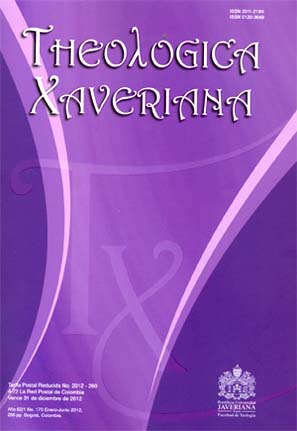Abstract
Do men and women from other religions reach salvation? If the message of salvation revealed in Jesus Christ is meant for all humanity, regardless race, gender, condition, and time, such an issue cannot be regarded as a minor one, and it was not either for the theologians in the Second Vatican Council fifty years ago. To this respect, some of the ideas proposed by J. Dupuis in his work Toward a Christian Theology of Religious Pluralism suggest an encounter between the Belgian theologian and Raimon Panikkar. Without a doubt, both agree about the occurred turn: it was a movement from an ecclesiological view to a Christological one; however, this movement has forced us to wonder one more time about our Christic understanding, and, in that sense, about the validity of the Panikkarian proposal of Christophany.
This journal is registered under a Creative Commons Attribution 4.0 International Public License. Thus, this work may be reproduced, distributed, and publicly shared in digital format, as long as the names of the authors and Pontificia Universidad Javeriana are acknowledged. Others are allowed to quote, adapt, transform, auto-archive, republish, and create based on this material, for any purpose (even commercial ones), provided the authorship is duly acknowledged, a link to the original work is provided, and it is specified if changes have been made. Pontificia Universidad Javeriana does not hold the rights of published works and the authors are solely responsible for the contents of their works; they keep the moral, intellectual, privacy, and publicity rights.
Approving the intervention of the work (review, copy-editing, translation, layout) and the following outreach, are granted through an use license and not through an assignment of rights. This means the journal and Pontificia Universidad Javeriana cannot be held responsible for any ethical malpractice by the authors. As a consequence of the protection granted by the use license, the journal is not required to publish recantations or modify information already published, unless the errata stems from the editorial management process. Publishing contents in this journal does not generate royalties for contributors.


